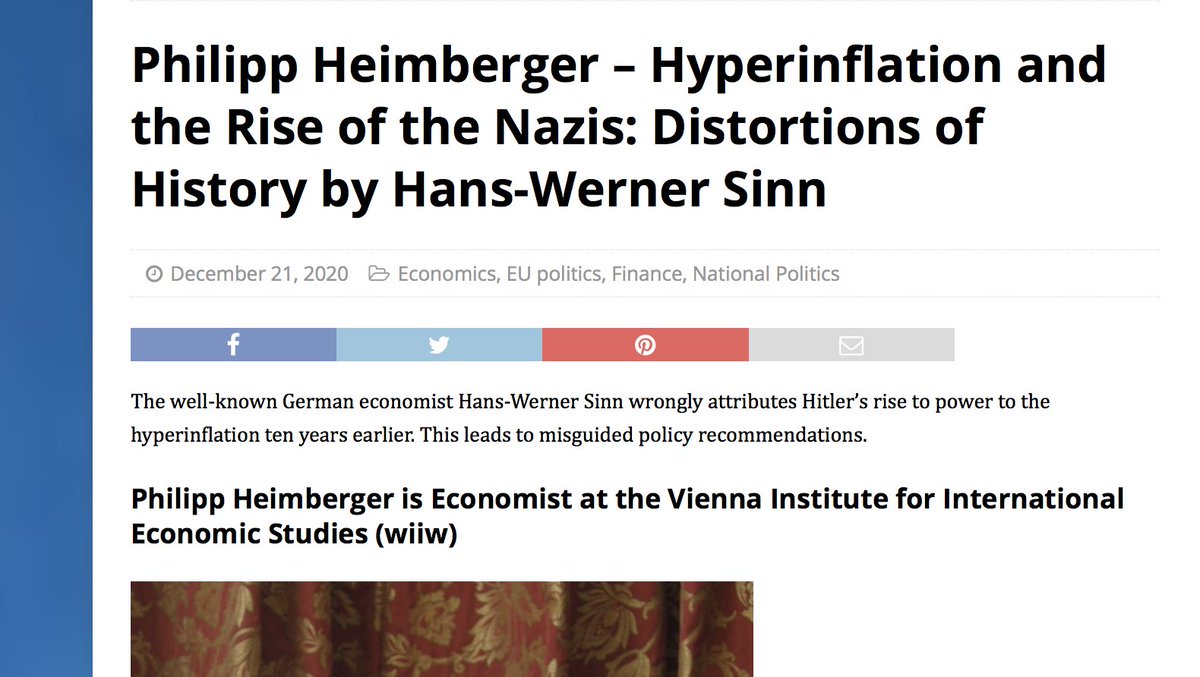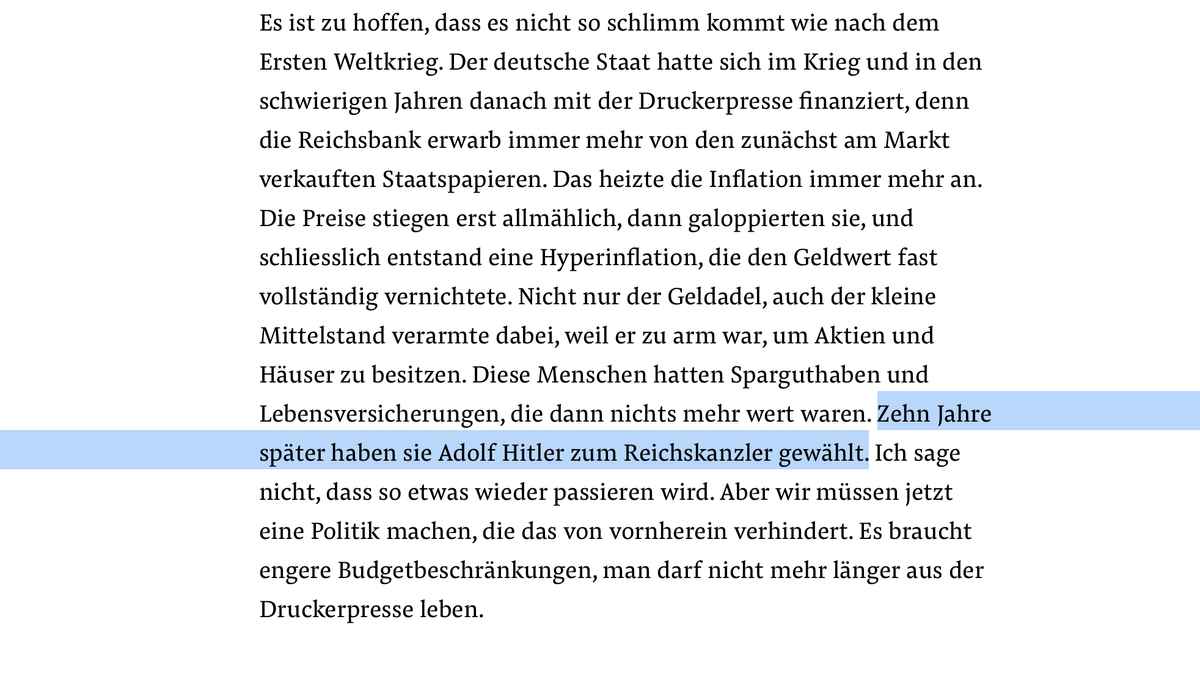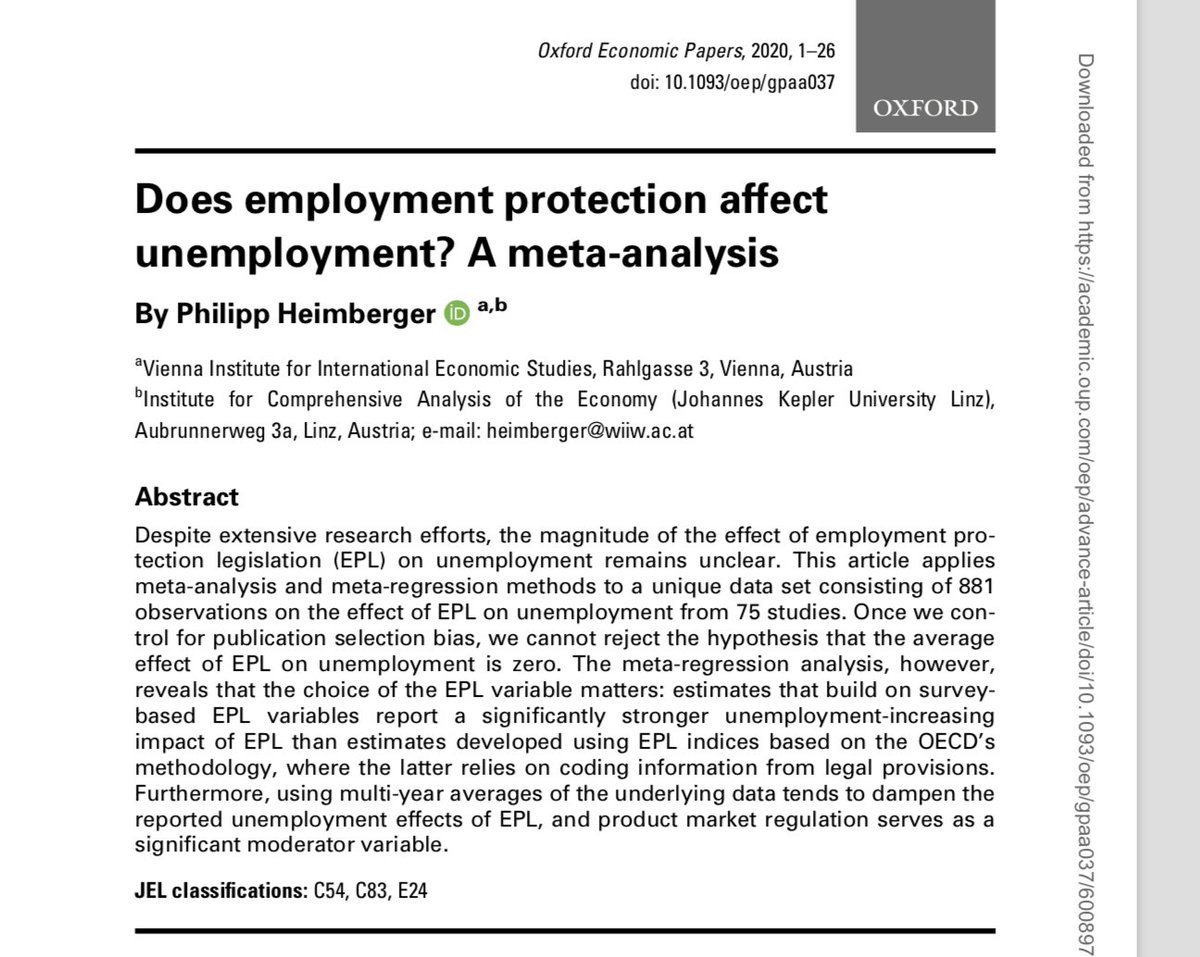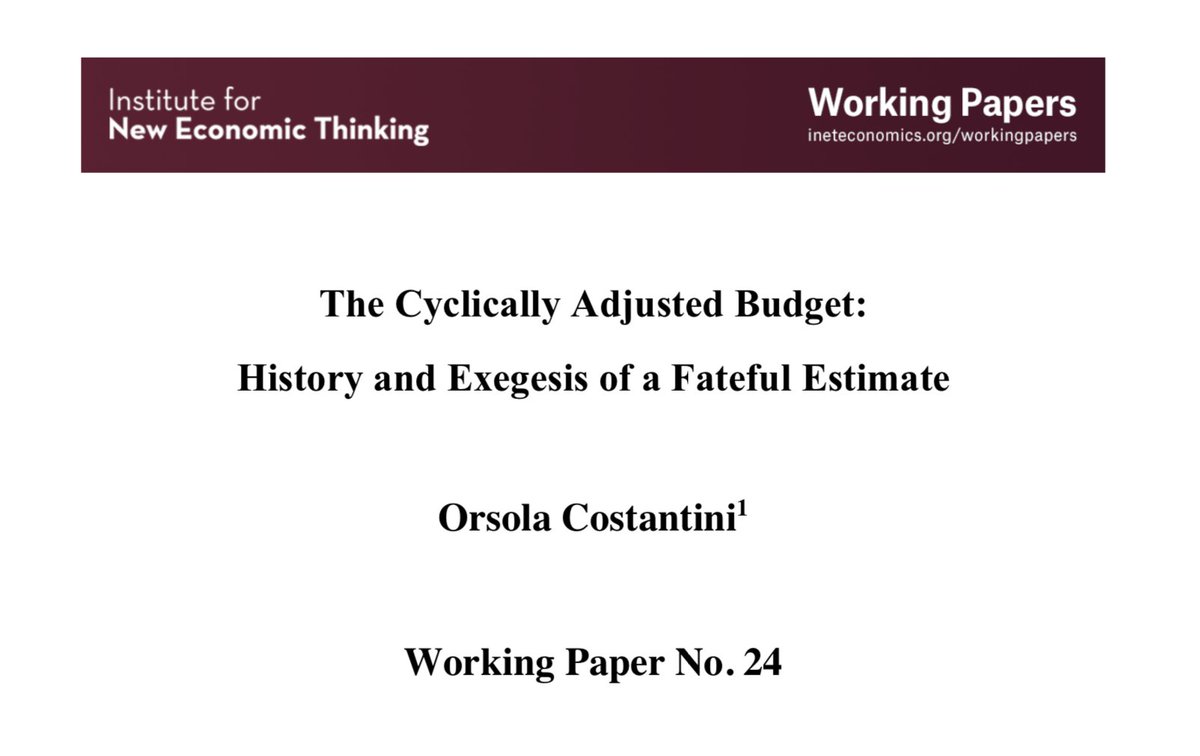
EU-Wiederaufbaufonds wird dazu beitragen, dass EU-Länder nach Corona nicht weiter auseinanderdriften. €750 Milliarden durch EU-Anleihen; damit wird EU zu wichtigem Akteur auf den Anleihemärkten; ein Zukunftsmodell! Meine Kolumne @handelsblatt: Thread/1
handelsblatt.com/meinung/kolumn…
handelsblatt.com/meinung/kolumn…

In den letzten Monaten von 2020 begab die EU ihre ersten COVID-bezogenen Anleihen für das SURE-Programm (Unterstützung von Kurzarbeitsprogrammen in Mitgliedstaaten) - bei negativer Verzinsung und enormer Nachfrage nach den EU-Anleihen. /2
ec.europa.eu/commission/pre…
ec.europa.eu/commission/pre…

Das war erst der Auftakt: Zur Finanzierung wird EU-Kommission im Namen der EU bis zu €750 Milliarden auf den Finanzmärkten aufnehmen; €390 Milliarden Zuschüsse für Mitgliedstaaten, die nicht zurückgezahlt werden müssen; €360 Milliarden über Kredite. /3
ec.europa.eu/info/strategy/…
ec.europa.eu/info/strategy/…

Die massive Nachfrage nach den ersten COVID-bezogenen EU-Anleihen zeigt: InvestorInnen suchen nach „sicheren Häfen“. Mit der EU als Schuldnerin sind sie bereit, negative Zinsen in Kauf zu nehmen. /4
Dies demonstriert das immense Potenzial von Anleihen, welche die EU im Namen aller Mitgliedstaaten begibt. Das sollte auch für zukünftige EU-Investitionsprogramme zur Adressierung von Zukunftsherausforderungen wie Klimawandel und Digitalisierung genützt werden. /5
Wie viel Geld die EU für das Aufbauinstrument an den Finanzmärkten exakt aufnehmen wird, bleibt offen: Es ist nicht klar, ob alle Länder vollständig die verfügbaren „Next Generation EU“-Kredite, die sie zurückzahlen müssen, nützen werden. /6
Regierungen wie jene in Madrid und Rom liebäugeln damit, die an die Verwendung der EU-Kredite geknüpften Bedingungen zu vermeiden. Das liegt an den negativen Erfahrungen des Südens mit den Sparbedingungen der Troika aus Zeiten der Eurokrise. /7
english.elpais.com/spanish_news/2…
english.elpais.com/spanish_news/2…
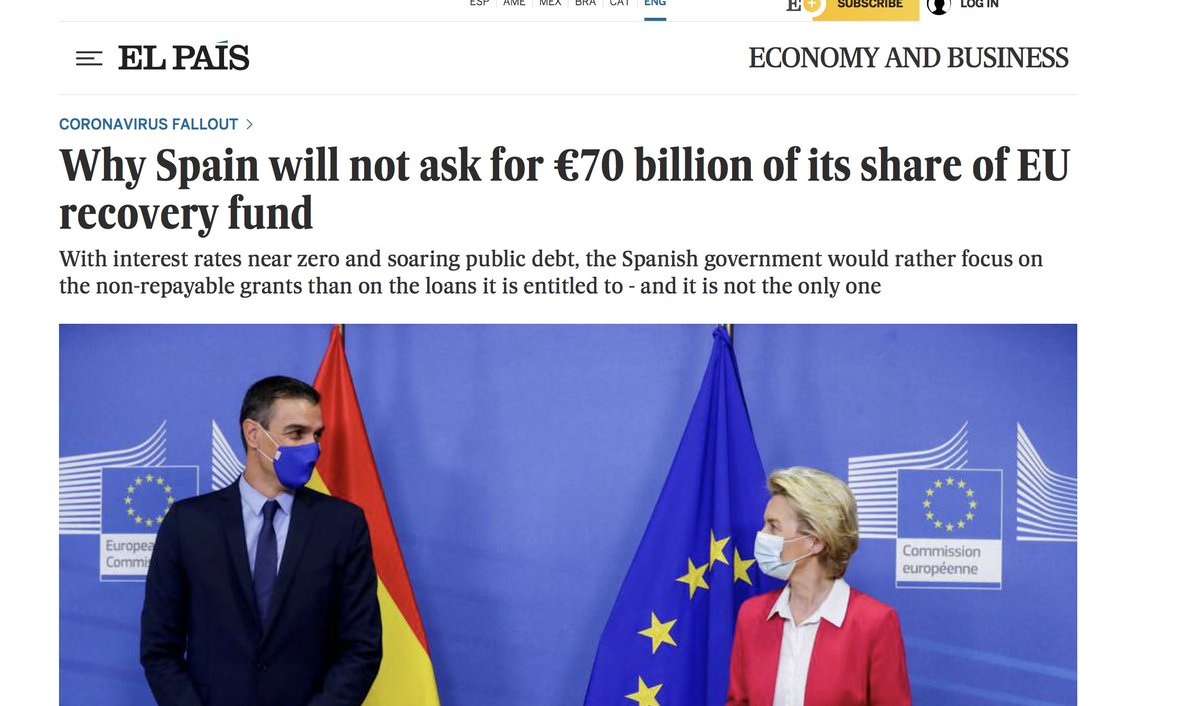
In der EZB gab es am Ende des vergangenen Jahres Diskussionen, ob die Anleihenkäufe der Zentralbank für jene Länder reduziert werden sollten, welche die verfügbaren EU-Kredite aus „Next Generation EU“ nicht ausschöpfen. /8
nasdaq.com/articles/ecb-n…
nasdaq.com/articles/ecb-n…
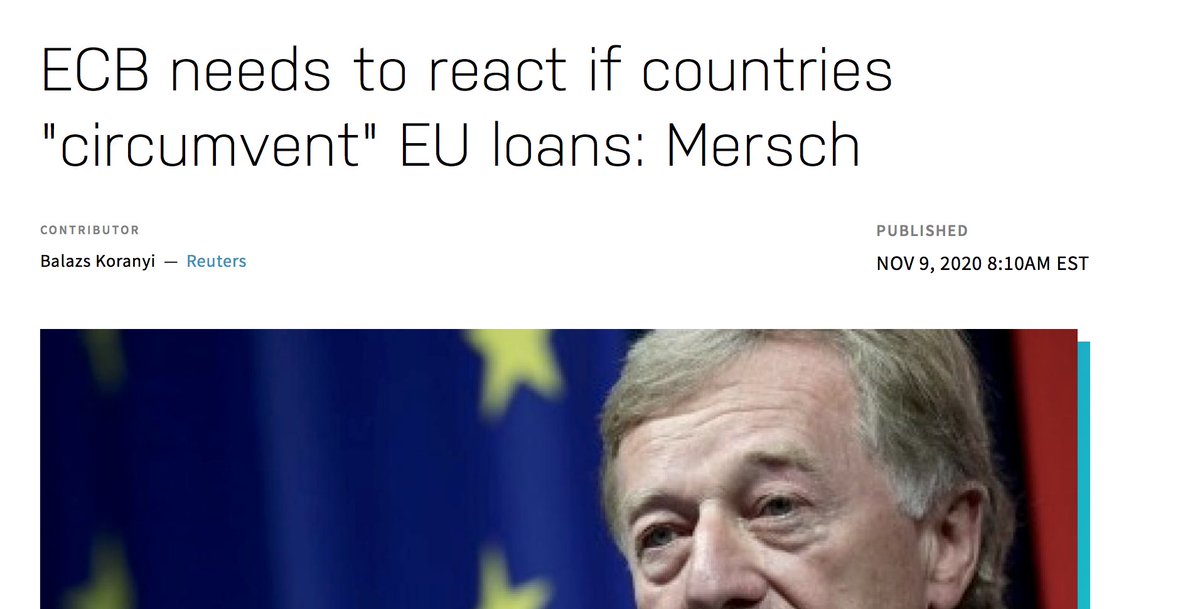
Das wäre jedoch ein gefährliches Spiel, das die EZB unterlassen sollte: Es könnte zu Spekulation und Turbulenzen an den Finanzmärkten führen, die Europa jetzt gar nicht brauchen kann. /end
• • •
Missing some Tweet in this thread? You can try to
force a refresh







